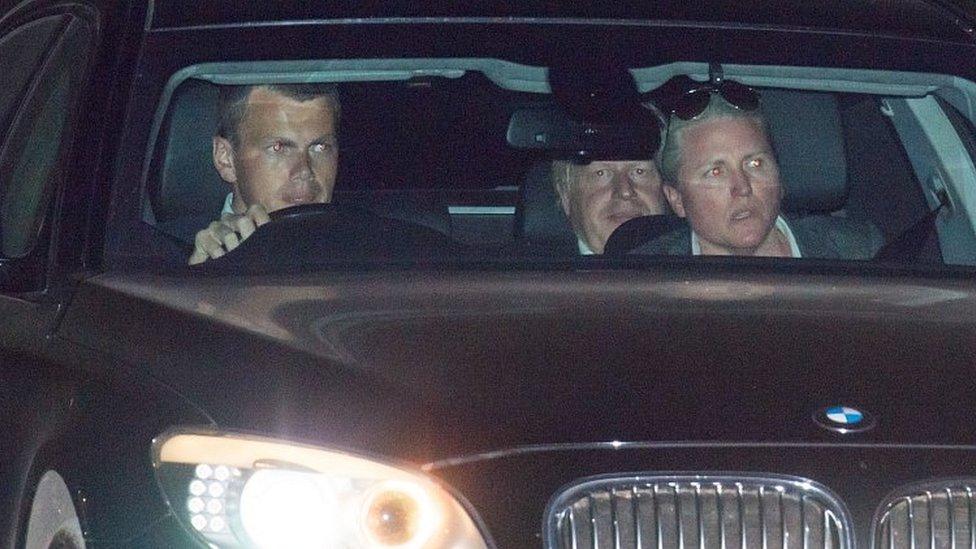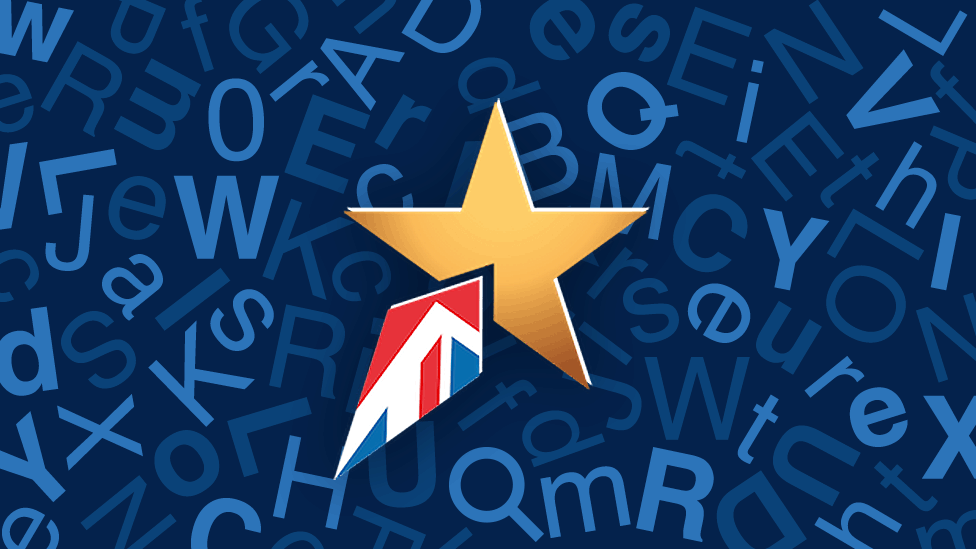Brexit: Michael Gove urges Tories to back Theresa May's plan
- Published
'Be generous or we'll walk away' - Gove's warning to EU
Michael Gove has urged Tory MPs to back a compromise Brexit plan as the best chance of a "proper" exit from the EU.
He told the BBC it was not all he hoped for, but said he was a "realist" and dismissed claims it would leave the UK as a "vassal state".
But he warned the EU had to be more generous or the UK would have no option than to walk away without a deal.
Labour also urged the EU to be more flexible but said Theresa May's customs plan was a "fudge" and would "unravel".
In the Commons on Monday, Theresa May will tell MPs her plan will mean "a complete end to freedom of movement", restore the "supremacy of the British courts" and ensure no more "vast sums of money" would be sent to Brussels.
She is expected to say that since the 2016 referendum decision to leave the EU, "I have listened to every possible idea and every possible version of Brexit. This is the right Brexit".
Several Tory MPs have expressed unease since Friday, when the cabinet approved a document setting out the UK's vision for its future relationship with the EU after it leaves in March 2019.
Under the proposals, yet to be presented to the EU, there would be a free trade area for industrial and agricultural goods, based on a "common rule book" and a "combined customs territory".
Boris Johnson is understood to have strongly criticised the plan during the cabinet meeting at Chequers before signing up to it. He is said to have warned colleagues it could be a "serious inhibitor to free trade" and striking deals with other countries.
The foreign secretary then backed the proposals - despite claiming that defending the plans was like "polishing a turd".

Boris Johnson has signed up to the plan but made his misgivings known
But environment secretary Mr Gove, who campaigned for Brexit alongside Mr Johnson in the 2016 referendum, told the BBC's Andrew Marr show he was satisfied the solution would "honour" the result of the vote.
The free movement of people was ending, he said, and the UK Parliament would have the final say over rules governing a "huge swathe" of the British economy.
"In all the important areas where an independent country chooses to exercise sovereignty, the UK will be able to do so and, in so doing, respect the referendum result and the mandate we were given," he said.
Asked if Mrs May's offer was all he had hoped for, he replied: "No, but then I'm a realist and one of the things about politics is you mustn't, you shouldn't, make the perfect the enemy of the good."
'Showing flexibility'
While urging his colleagues to get behind the prime minister as she tries to secure a deal by October, he said the UK must be prepared for this not happening.
"We are being generous to the EU, we are showing flexibility," he said. "If the EU is not generous and flexible, we may have to contemplate walking away without a deal.
"No-one wants to walk away now because we are in the middle of a negotiation - what we need to be able to do is to walk away in March 2019."
MP says the Cabinet needs to learn from England and pull together as a team.
After ministers signed up to the deal on Friday night, Mrs May said the time for them to air their concerns in public was over and collective cabinet responsibility had been re-instated - a stance endorsed by Mr Gove.
The prime minister has urged the EU to take her offer seriously. She refused to rule out offering EU citizens some form of special status as part of a proposed new "mobility framework".
But Tory Brexiteers not in the government have spoken out against the plan, warning the UK will have to follow EU laws and European Court of Justice rulings and not have an "effective international trade policy".
Conservative MP Andrew Bridgen said the proposed deal was "indefensible" as it was "probably worse than staying in the EU". He suggested his support for the prime minister was not unconditional.
"At the moment, she's not only let the party down, she's let herself down," he told the BBC. "If she sticks with this deal, I have no confidence in it. If she sticks with this, I will have no confidence in her."
And pro-Remain Tory MP Phillip Lee has suggested the offer was the "worst of all worlds" and restated his call for a second referendum - with the option of staying in the EU to be on the ballot paper.
'Think again'
Shadow Brexit secretary Sir Keir Starmer said proposals to avoid customs checks by differentiating between UK and EU-bound goods, in terms of what tariffs should be paid, were "a bureaucratic nightmare".
"This has got fudge written all over it," he told Andrew Marr. "She (Theresa May) has not met our demands. It is going to unravel and she will have to think again."
He urged Mrs May to put her customs proposals to a vote in Parliament in a week's time, suggesting Labour's alternative plan for a comprehensive customs union had the backing of the majority of MPs.
Scottish First Minister Nicola Sturgeon said it was "game on" for the SNP and others who wanted the UK to remain in the existing customs union and single market.
Allow X content?
This article contains content provided by X. We ask for your permission before anything is loaded, as they may be using cookies and other technologies. You may want to read X’s cookie policy, external and privacy policy, external before accepting. To view this content choose ‘accept and continue’.
On the other side of the debate, UKIP leader Gerard Batten said Mrs May was "surrendering" to the EU and "dashing the hopes and dreams of 17.4 million British voters" who backed Brexit in 2016.
The main details from the Chequers statement, external, to be incorporated in a white paper next week, are:
The UK would accept continuing "harmonisation" with EU rules on the exports and imports of goods, covering only those necessary to ensure frictionless trade
Parliament would have the final say over how these rules are incorporated into UK law, retaining the right to opt out
There will be different arrangements for trade in services, including financial products, with greater "regulatory flexibility"
Freedom of movement will end but a "mobility framework" will ensure UK and EU citizens can continue to travel to each other's territories and apply for study and work
A new customs arrangement will be phased in, allowing the UK to control its own tariffs and develop an independent trade policy
The jurisdiction of the European Court of Justice will end but the UK will pay regard to its decisions in areas where common rules are in force
- Published9 July 2018
- Published11 December 2020
